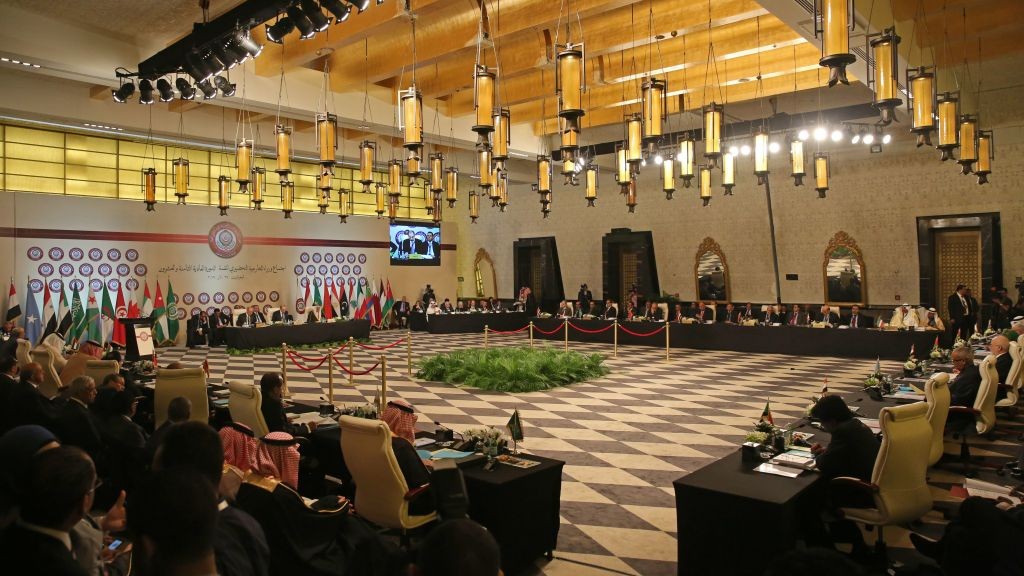Dead Sea (Jordan) – Arab foreign ministers put the final touches on the main documents, which will be discussed by the Arab League Summit leaders in the Dead Sea on Wednesday.
Arab ministerial sources told Asharq Al-Awsat newspaper that an “unprecedented atmosphere” prevailed over the preparatory meetings, as all parties have agreed on the need to overcome crises threatening the future of the Arab region and to find Arab-made solutions away from foreign interference.
The sources said they were expecting important and historic decisions to be reached by Arab leaders at the end of the Summit.
Speaking at Tuesday’s preparatory meeting, Jordanian Foreign Minister Ayman Safadi, who was handed over the Summit presidency from his Mauritanian counterpart Isselkou Ould Ahmed Izid Bih, said the 28th Arab summit was taking place at a “difficult time” for the Arab nation, adding that the Arab national regime has so far failed to establish stability in the region.
“Over the years, the regional Arab system has not been able to resolve regional issues, which has decreased the Arab people’s trust in the effectiveness of collective Arab work,” he said.
The Jordanian minister warned that, as a result, external forces were able to intervene and exercise their power according to their agendas.
He stressed that Arab leaders agree on the centrality of the Palestinian issue, and that ending the injustice practiced against Palestinians through the achievement of the two-state solution was a core requirement in order to achieve regional safety and stability.
Safadi cited the fight against terrorism as another central point of agreement among Arabs.
Arab League Secretary General Ahmed Abul Gheit, for his part, called on Arab countries to urgently resolve the refugee crisis.
“We still have heartwarming evidence of Arab solidarity when we look at how millions of Arab refugees have sought refuge in Arab countries, which in return received them with the utmost care,” he said.
“We should support countries like Jordan and Lebanon, which are no longer able to overcome the repercussions of hosting refugees,” Abul Gheit added.
He also stressed the need for immediate Arab action towards the “huge” security threats facing the region, which he noted are unprecedented since the Israeli aggression in 1967.
“We are ready to work with any sincere side that is willing to work for the establishment of an independent Palestinian state with Jerusalem as its capital,” he stated.
